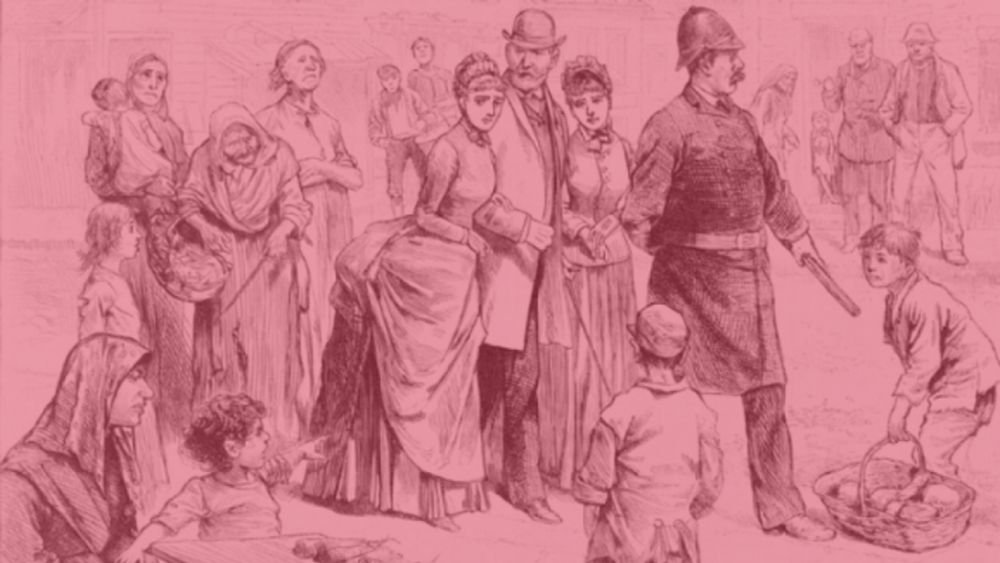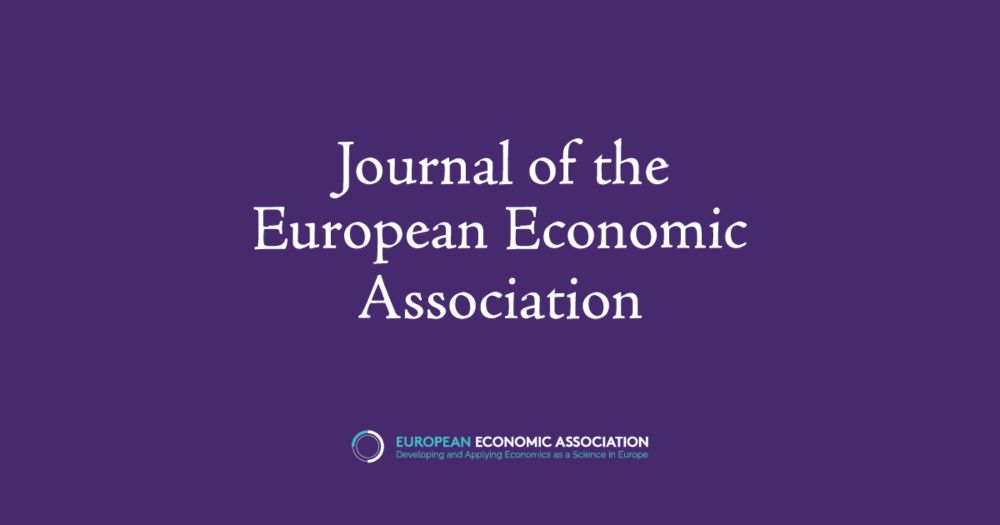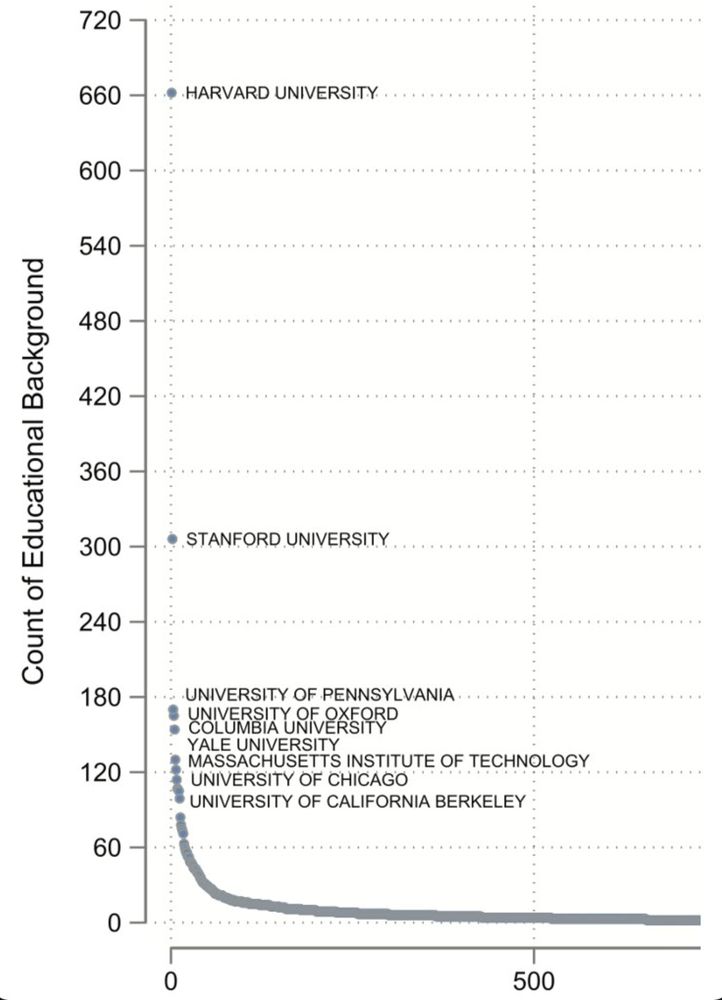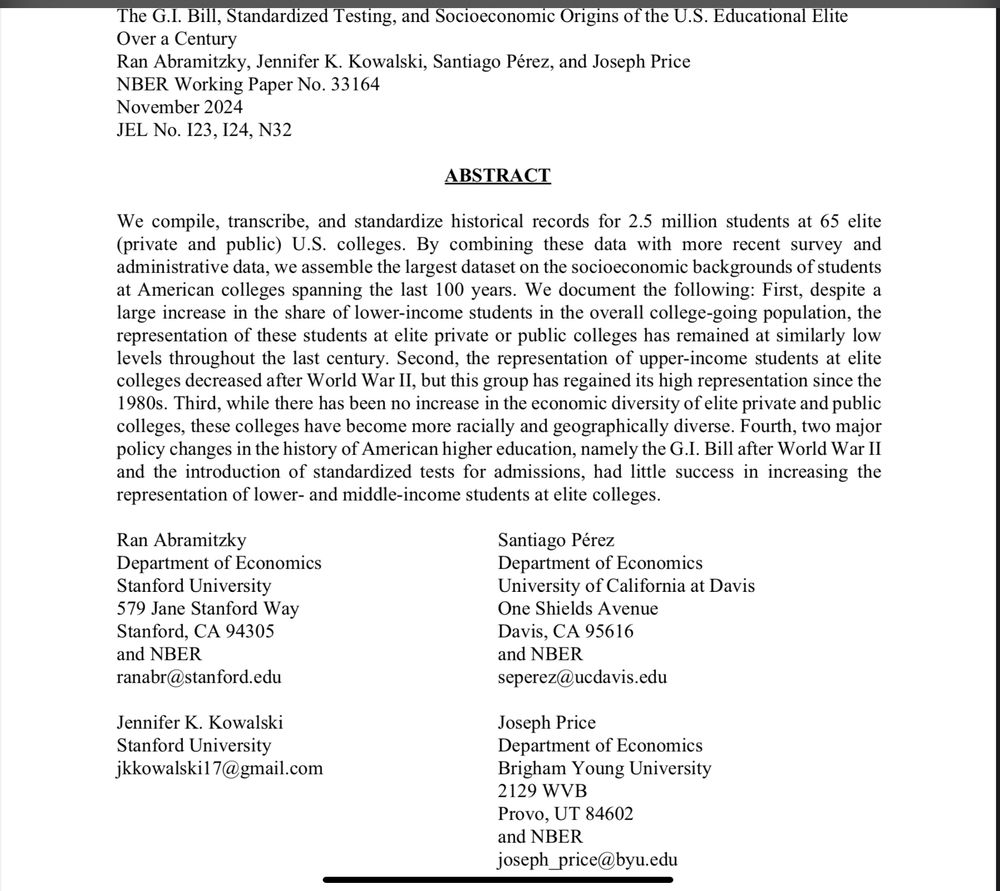
Our paper with @fcinnio.bsky.social @hornungerik.bsky.social “Flow of ideas: Economic societies and the rise of useful knowledge” is out in print
@theeconjournal.bsky.social 🚨🚨🚨
In it, we investigate the effect of knowledge sharing societies from the 18th century on long-run innovation. Read on ->
07.07.2025 14:19 — 👍 25 🔁 10 💬 1 📌 1
PhD Students in Econ (and related fields): Join us at Warwick for a 3 day conference in May 2026!
There will be sessions covering all major fields, along with two great keynotes and plenty of time to socialise with peers.
We look forward to your submission (deadline: 31/01/2026), more info below.
03.12.2025 11:31 — 👍 3 🔁 3 💬 0 📌 0
Historical Census of Manufactures Microdata - Historical Census of Manufactures Microdata
Hi all, please spread the word and we hope everyone can make good use of this new data drop: cmfdata.org
The full surviving establishment-level Census of Manufactures manuscripts and digitized data from 1850, 1860, 1870, and 1880!
06.11.2025 17:18 — 👍 97 🔁 60 💬 1 📌 7

Until the 18th century, navigation across the open seas was perilous. Sailors could travel long distances but faced an impossible task determining their position.🧭
Martina Miotto offers a new perspective for #Advantage on the way an advanced clock transformed global trade. 📰
buff.ly/ghuvypN
22.09.2025 10:34 — 👍 5 🔁 3 💬 0 📌 0
VoxEU column now up for my paper on "Wars, Taxation and Representation" with @essobecker.bsky.social, @andyferrara.bsky.social and @luigipascali.bsky.social.
Full paper available here:
doi.org/10.1093/jeea...
17.07.2025 12:29 — 👍 9 🔁 4 💬 0 📌 0
Great discussion on latest figures of people crossing the Channel in small boats, & how hostility towards them has us caught in a doom-loop that prevents the sane, humane management of immigration #r4today
Thank you @bylinetimespod.bsky.social 😊
02.07.2025 07:14 — 👍 101 🔁 38 💬 2 📌 1

The impact of welfare reforms - lessons from history
Many in opposition to the government's proposed welfare cuts describe the bill as 'Dickensian' and 'from another era'. While the debate continues, we highlight the work of CAGE Research Associates Eri...
“.. welfare cuts are felt most strongly by those who are already economically vulnerable and can therefore exacerbate existing inequalities.” Research by @ericmelander.bsky.social and Martina Miotto analyses the impact of the 1834 reforms – the largest welfare cut in British history. buff.ly/5CdCJWw
03.07.2025 13:42 — 👍 4 🔁 3 💬 0 📌 0

Wars, Taxation and Representation: Evidence from Five Centuries of German History
Abstract. We provide causal evidence for the role of warfare in the development of medieval constitutionalism. Using novel data on the universe of German c
Forthcoming article by @essobecker.bsky.social @andyferrara.bsky.social @ericmelander.bsky.social @luigipascali.bsky.social "Wars, Taxation and Representation: Evidence from Five Centuries of German History" @eeanews.bsky.social
doi.org/10.1093/jeea...
01.07.2025 05:56 — 👍 14 🔁 3 💬 1 📌 0


Excited for Volume 2 of the Second City History and Economics Meeting (SCHEMe), taking place over the next two days at @unibirmingham.bsky.social!
12.06.2025 08:19 — 👍 4 🔁 0 💬 0 📌 0

Malthusian Migrations
Founded in 1920, the NBER is a private, non-profit, non-partisan organization dedicated to conducting economic research and to disseminating research findings among academics, public policy makers, an...
My new paper with @guillaumeblanc.bsky.social is out as an NBER Working Paper. Demographic pressures have had lasting effects on the spread of diasporas. Malthusian migrations contributed to sustained improvements in living standards in Europe in the 19th century. www.nber.org/papers/w33542
11.03.2025 00:04 — 👍 27 🔁 7 💬 0 📌 0

🚨 New Working Paper 🚨
w/ @pdavidboll.bsky.social and @jvoth.bsky.social
Do you run regressions on spatial data? Then keep reading!
We present a guide and Stata package for methods by Müller and Watson (2024 ECTA) to deal with Spatial Unit Roots in Regressions.
Link in 🧵 (1/n)
22.01.2025 12:38 — 👍 69 🔁 26 💬 1 📌 2

Move over WORMS, there is a new contender for SHORTEST ECON PAPER TITLE OF ALL TIME.
16.12.2024 19:19 — 👍 94 🔁 6 💬 10 📌 3

📣FOUR WEEKS LEFT - Don't miss the deadline for the #RES2025 Annual Conference Call for Submissions!
⏰Deadline 13 January 2025
👉 bit.ly/4hku5q7
#EconSky #EconEvents #RESEvents #RESConference #EconPhD
12.12.2024 10:02 — 👍 7 🔁 1 💬 0 📌 1

Last, this is why descriptive work is underrated.
No preposterous IV, no incomprehensible structural black box, there is just a new fact about the world.
If the descriptive work is done well — and it is not easy — the fact permanently enters everyone's headspace and must be contended with.
06.12.2024 19:20 — 👍 131 🔁 26 💬 5 📌 3
Hi Bluesky! 👋
You can connect with colleagues at my dept (Economics @unibirmingham.bsky.social) here: go.bsky.app/8UwyriL
26.11.2024 15:06 — 👍 8 🔁 4 💬 0 📌 0

Today and tomorrow we will celebrate the life and work of the late Nick Crafts ❤️
Nick was a fantastic colleague, friend, and founding director of @cagewarwick.bsky.social
Today's Crafts Lecture will be given by the wonderful Leah Boustan.
Full program 👇
warwick.ac.uk/fac/soc/econ...
20.11.2024 08:08 — 👍 60 🔁 14 💬 0 📌 3

Going to give this website a try - with a new profile picture! Definitely feels like an econ bubble, but I guess that’s the point.
Expect a thread on my newest work, Malthusian Migrations (with @romainwacziarg.bsky.social), soon! 🚨
www.guillaumeblanc.com/files/theme/...
19.11.2024 17:18 — 👍 56 🔁 17 💬 4 📌 1
Re-sharing the #econhist Starter Pack for new arrivals:
go.bsky.app/U6KyhNv
10.11.2024 12:10 — 👍 50 🔁 32 💬 13 📌 1

The G.I. Bill, Standardized Testing, and Socioeconomic Origins of the U.S. Educational Elite Over a Century
Ran Abramitzky, Jennifer K. Kowalski, Santiago Pérez, and Joseph Price
NBER Working Paper No. 33164
November 2024
JEL No. 123, 124, N32
ABSTRACT
We compile, transcribe, and standardize historical records for 2.5 million students at 65 elite (private and public) U.S. colleges. By combining these data with more recent survey and administrative data, we assemble the largest dataset on the socioeconomic backgrounds of students at American colleges spanning the last 100 years. We document the following: First, despite a large increase in the share of lower-income students in the overall college-going population, the representation of these students at elite private or public colleges has remained at similarly low levels throughout the last century. Second, the representation of upper-income students at elite colleges decreased after World War II, but this group has regained its high representation since the 1980s. Third, while there has been no increase in the economic diversity of elite private and public colleges, these colleges have become more racially and geographically diverse. Fourth, two major policy changes in the history of American higher education, namely the G.I. Bill after World War II and the introduction of standardized tests for admissions, had little success in increasing the representation of lower- and middle-income students at elite colleges.
Holy crap this is an astounding piece of historical research
Will post ungated link later today unless someone beats me to it
www.nber.org/system/files...
18.11.2024 12:47 — 👍 1384 🔁 469 💬 66 📌 75
https://organizationalhistorynetwork.substack.com/
Economics PhD student @warwickecon.bsky.social . Interested in labour markets. Confusingly goes by middle name.
https://www.pauldavidboll.com/
Associate Professor (mcf) in Economic History, University of Paris 8.
When I’m not working on archival documents, you can find me wandering through the valleys and forests of Normandy birdwatching.
https://paulmaneuvrierhervieu.github.io/
Assistant Professor at Toulouse School of Economics (TSE)
https://victorgay.netlify.app/
Béton brut for bluesky — by @spice.bsky.social
🇨🇺#EndTheBlockade
🇵🇸#FreePalestine
We rate DAGs.
(If you were hoping for dogs, try here: @weratedogs.com)
NEW Fearless, independent journalism covering culture, politics and tech
Join us! Sign up for our free twice-weekly newsletter. ⚡️⬇️
We rely on supporters to fund our work. Please consider upgrading to membership of the Nerve… 🙏
thenerve.news/membership
Political Economy, Development Economics, Economic History.
Assistant Professor @econhohenheim.bsky.social
Senior researcher @unigoettingen.bsky.social
PhD from @uniheidelberg.bsky.social
gerda-asmus.com
Political Economy |
Media, Networks & Text-as-Data |
🇦🇷🇪🇦🇬🇧
https://agustinamartinezpozo.github.io/
Economic historian. Associate Professor at the University of Pittsburgh and Research Associate at the NBER. https://andreas-ferrara.com/
CEPR, established in 1983, is an independent, non‐partisan, pan‐European non‐profit organization. Its mission is to enhance the quality of policy decisions through providing policy‐relevant research, based soundly in economic theory.
UK & EU refugees & migration. LGBTI+, feminism & generalised incoherent ranting to boot. She/Her. I do policy, research & campaigns.
Assistant Professor in Economic History at Utrecht University, studying economic development, trade, religion, education, gender and demography.
Research group in economic history & comparative development at the Univ. of Manchester. Unravelling the big questions of history. Led by Nuno Palma & Yuzuru Kumon
Associate professor of Economics
Development Economics -- Economic History -- Family Economics
https://sites.google.com/view/paolavillar/home
AP in Economics @BathUni • Previously: @SAFE_Frankfurt • @WarwickUni • @UniBocconi • Politics, Media & Science
https://www.eleonora-alabrese.com
Applied economist @KozminskiUni: institutions, governance, resilience. PhD from @UniBocconi. Host and founder of Policy Implications Podcast.













